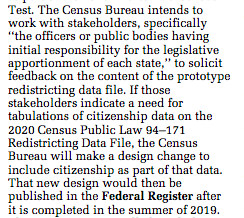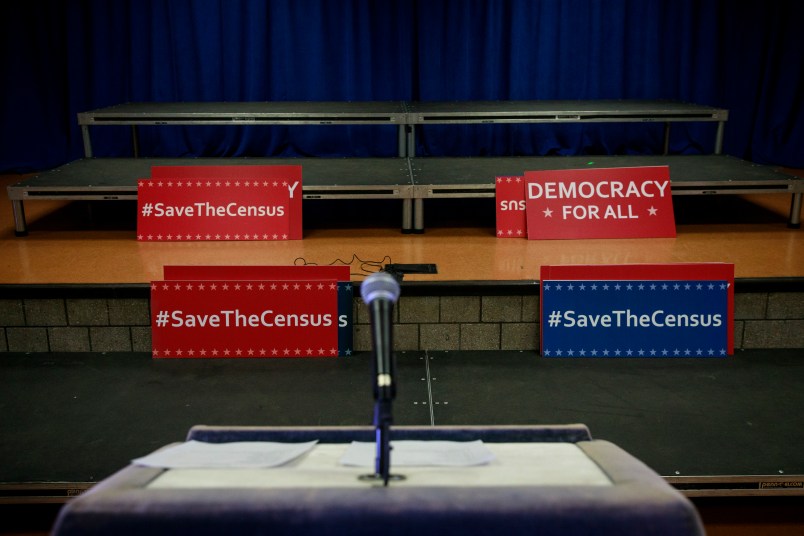In what could be a major change for voting rights and the distribution of political power between urban and rural areas, the Census Bureau signaled Friday that it is willing to work with state and local officials charged with drawing voting districts if they want citizenship data for the redistricting process.
The move to inject citizenship into redistricting has been feared since the Trump administration decided to add a citizenship question to the 2020 census. The addition of the citizenship to the census remains embroiled in litigation.
The indication came in the form of a federal registry notice with the Office of Budget and Management outlining the next steps the Census Bureau intends to take as it prepares for the decennial survey.

“The Census Bureau intends to work with stakeholders, specifically ‘the officers or public bodies having initial responsibility for the legislative apportionment of each state,’’ to solicit feedback on the content of the prototype redistricting data file,” the notice said. “If those stakeholders indicate a need for tabulations of citizenship data on the 2020 Census Public Law 94–171 Redistricting Data File, the Census Bureau will make a design change to include citizenship as part of that data.”
The design change would be published in the federal registry in the summer of 2019, the notice said.
The Trump administration, in deciding to include a citizenship question in the 2020 survey, claimed the question was requested by the Justice Department for Voting Rights Act enforcement. That claim that has been contradicted by internal records since released in lawsuits challenging the move.
The decision prompted alarm by voting rights activists, civil rights advocates and policy wonks. They believe it will depress the participation of immigrant communities on the census — causing an undercount that would shift political power and resources away from those populations — while also leading to exclusion of non-citizens in legislative redistricting altogether in some states and localities.
It is not clear whether the Bureau is offering up the citizenship data in anticipation that officials would seek to exclude noncitizens from redistricting, or if the Bureau had in mind assisting officials in drawing Voting Rights Act-compliant maps, which take into account citizen voting populations. In the past, a smaller scale Census survey has provided the citizenship estimates that are used for Voting Rights Acts purposes.
However, Nate Persily, an election law expert at Stanford Law School, noted that the data set being referenced in the notice was the minimum thought to be necessary for redistricting that the Bureau makes available for state and local officials.
“By providing citizenship data with the initial salvo of data that states will have for redistricting, they are not only enabling the drawing of VRA-compliant districts but they are also enabling the drawing of districts based on the whole number of citizens rather than the whole number of people,” he said.
TPM tried to call the Census Bureau communications office to inquire about the notice, but met an automated message noting the partial government shutdown. The Bureau did not immediately respond to TPM’s email inquiry about the notice.
Drawing districts based on the number of citizens instead of the number of residents has been a long sought goal of conservatives. While the Supreme Court in a recent case reaffirmed the use of total population for redistricting, whether states or localities could use another metric is a more open legal question.
Doing so would be a major electoral advantage for Republicans, as it would boost the number of representatives that less diverse, more rural communities received while diminishing the representation of urban, more immigrant-friendly areas.
If state or local officials seek the citizenship data after the 2020 census for the purposes of excluding noncitizens from redistricting, it will likely lead to a hugely consequential legal battle.
Read the full federal registry notice below:










